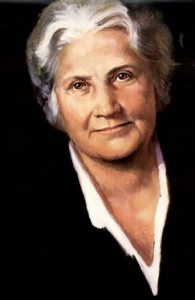
Mission Statement
We are a community of diverse families and educators working together to offer quality Montessori education in a nurturing environment that enriches, empowers and inspires the whole child to reach their potential. We encourage and support parents to be responsible for and involved with their children’s education.
Vision Statement
Changing the world by nurturing children and their families to be informed, compassionate, life-long learners who are a force for change in education, the community, and society.
Bill of Rights
All people at Highland Community School have the following rights.
Theses rights may not ever be taken away for any reason.
The Right to
physical safety
No one may ever use their hands, feet or other objects to physically hurt you.
The Right To
emotional safety
No one is allowed to intentionally hurt your feelings to make you feel uncomfortable.
The Right To
work in peace
Your work will only be disrupted when something more important is taking place and your attention is required. No one will be allowed to do things that distract you from getting your work done.
Strategic Plan 2019-2022
In the summer and fall of 2019, Highland’s Board of Directors and the faculty and staff met multiple times to review the previous three-year strategic plan and create a new one. In the links below you will find access to the current Strategic Plan and Appendix A, which contains all the objectives we are aiming to achieve in 2020.
THE FIVE PILLARS OF A HIGHLAND EDUCATION
A Montessori Pedagogy
Cultivating Youth Leadership
Arts
Honoring The Creative Spirit
Community
Creating a Nurturing Place
Social Justice
Change Agents for a Better World
Care of The Environment
Growing an Environmental Ethic
A Unique History
In 1968, Highland Community School was born from the efforts of a small group of parents who wanted a new approach to education in the central west side of Milwaukee. The children and parents of Highland rallied around the new school despite rampant crime and socio-economic hardship in the Concordia and Near Westside neighborhoods.
Highland Community School was founded with a commitment to the neighborhoods and the Montessori philosophy of teaching. The original school was in the Victor Schlitz mansion on 20th Street and Highland Avenue.
Highland continued to grow as the community bought into Montessori’s nurturing and socially responsible brand of education. Relying on parents became an integral component of the daily operation of Highland and helped to set the standard for today’s parent involvement requirement.
In 1996, Highland became the first charter school in Milwaukee, and of Milwaukee Public Schools. Soon afterward, it moved to a historic Pabst mansion just ten blocks away from its original site. While this wonderful spot, at 30th and Highland, successfully allowed us to continue our mission of developing community education, we began to outgrow the space. Our search for a new home in along Highland Avenue was successful in the spring of 2012, with the acquisition of a building at 17th and Highland Avenue. We have made this building our Montessori home and are committed to our diverse community of learners and their families.
The future of Highland Community School is sure to provide more exciting and inspiring stories for our extended family of life-long learners. What makes us unique is that our parents are the leaders and key decision-makers of the school and we are held directly accountable to their vision. Parent involvement is the essential ingredient that makes Highland like nowhere else.
To find out more about charter schools in Wisconsin go to www.wicharterschools.org or www.qualitycharters.org for national information.
What is Montessori?
 A Montessori education is a child-centered approach to education. Developed by Dr. Maria Montessori, the Montessori method promotes independence, social responsibility, and a love for learning. Children engage in learning through individual or small group instruction, self-directed work choices, and a prepared environment with wonderful materials and resources for exploration. Classrooms are multi-aged and lead by a Directress or Director.
A Montessori education is a child-centered approach to education. Developed by Dr. Maria Montessori, the Montessori method promotes independence, social responsibility, and a love for learning. Children engage in learning through individual or small group instruction, self-directed work choices, and a prepared environment with wonderful materials and resources for exploration. Classrooms are multi-aged and lead by a Directress or Director.
More than an approach to education, the Montessori philosophy is an approach to life. It embraces the role of education in the development of peaceful communities and the attainment of individual expression within a democratic society.
Dr. Maria Montessori lived from 1870 to 1952. Her lifetime accomplishments include being the first female doctor in Italy, a world famous author, educator, and spokesperson for human rights. She was nominated for the Nobel Peace Prize.
Dr. Montessori used her talents to observe children’s development and thereby provide them with learning opportunities appropriate to their readiness and needs. Her acute observations led to the evolution of her philosophy of natural child development and the designing of materials to promote learning.
Her belief was that no human is educated by another person. To be genuine, learning must be done internally by each individual. A truly educated person continues learning long after the classroom experience has ended because there is motivation from within that is fueled by a natural curiosity and a love of learning.
Dr. Montessori felt that the goal of early education should not be to inundate children with facts from a direct course of study. Instead, an objective of the education process is to cultivate the child’s own natural desire to learn.
